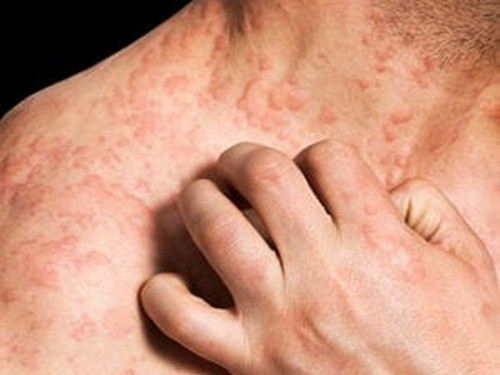WHAT IS SCURVY
Scurvy is a disease that’s caused by a deficiency in vitamin C (also known as ascorbic acid), which is common in developing economies. It doesn’t happen suddenly, generally setting in after a couple of months of low vitamin C intake.
The threat of scurvy translates to the importance of vitamin C in the body. Vitamin C is a key antioxidant that plays many important roles, including immune system support, iron absorption, and collagen production.
Although Vitamin C is easy to find in fruits and vegetables, its deficiency is common in developing countries largely due to low income and literacy level. Hence, scurvy does still affect these countries, and is a concern for populations with poor nutrition

The symptoms of scurvy include:
- Weakness, fatigue, or irritability
- Loss of appetite or weight loss
- Muscular pain
- Sunken eyes
- Paleness
- Diarrhea
- Increased heart rate or shortness of breath
- Fever
- Joint pain and poor wound healing
Late symptoms include:
- Swelling in joints or gums
- Reopening of old wounds
- Easy bruising
- Bulging eyes
- Dry, scaly skin
Scurvy symptoms in
children can be slightly different and, according to the Pediatric
Orthopaedic Society of North America, include:
- Weakness and irritability
- Poor wound healing
- Bone pain
- Loss of appetite
- Swollen, bluish gums
- Reduced bone formation
- Swollen limbs that bruise easily
Vitamin C cannot be made by the body — it has to come from supplements and vitamin C–rich foods —
so these symptoms may begin once intake drops and the body’s current stores are
used up, a process that typically takes several weeks
Causes and Risk
Factors of Scurvy
Scurvy is the direct result of vitamin C deficiency. Signs of scurvy can manifest with a vitamin C intake below 150 mg per day.
Risk factors for
scurvy include:
- High alcohol intake
- Tobacco use
- Low income
- Being on dialysis
Scurvy affects more
men than women, and because vitamin C is found in whole fruits and vegetables,
a deficiency is associated with poor nutrition
Vitamin C deficiency
is particularly prevalent among smokers, with vitamin C levels among smokers 33
percent lower than those of nonsmokers, research shows
Babies are generally
protected from scurvy because they obtain vitamin C from formula or breast
milk, but infants who are fed only cow’s milk may become deficient
Older children may
experience scurvy if they have an unusual diet, perhaps because of anorexia nervosa, autism, or a developmental delay, according to the
Pediatric Orthopaedic Society of North America.
Finally, there are
some health conditions that put people at a higher risk of developing scurvy,
including type 1 diabetes, eating disorders, gastrointestinal issues, iron
overload, restrictive diets, and allergies
Duration of Scurvy
Scurvy doesn’t last
long after vitamin C levels begin to bounce back. Most people will start
feeling better within a day or two and will fully recover within a week after
the adequate amount of vitamin c is regained in the body. Gum issues and
bruising also improve within 24 hours of starting treatment, while joint and
muscle-related symptoms may take a few days
Treatment and
Medication Options for Scurvy
Scurvy is generally
easy to treat by increasing vitamin C levels. In mild cases, scurvy can be
treated simply with Vitamin C supplements and vitamin C–rich foods.
Supplementation will help facilitate a quicker healing process
Children will need up
to 300 mg of vitamin C per day and adults will need 500 to 1,000 mg per day,
probably for one month or until adequate vitamin C levels are reached. In
the long term, however, the goal should be to address the underlying cause of
low vitamin C levels, if smoking, alcohol, poor diet, eating disorders, or a certain health
condition are leading to the deficiency
Prevention of Scurvy
To prevent scurvy,
make sure you’re getting enough vitamin C. This is not difficult to do if you
have access to fruits and vegetables. You can also take a supplement if you feel
you may be at risk. Vitamin C supplements do not carry any health risks. It is
also best to discuss with your primary care provider before taking supplements
or any medication long term
Complications of
Scurvy
Scurvy can typically
be treated easily, but it may lead to long-term issues if it goes untreated. Depending
on the severity of disease, scurvy can be very serious and even fatal. Because
scurvy can lead to swollen gums, your teeth may fall out. Children may
experience anemia, high blood pressure, problems with wound
healing, and failure to thrive, according to the Pediatric Orthopaedic Society
of North America.
In infants, untreated
deficiency can lead to pseudoparalysis, which is a lack of muscle power, and
older children may refuse to walk, according to the Pediatric Orthopaedic
Society of North America.
Both children and
adults may experience anemia, heart attack, or death if the
deficiency persists.






